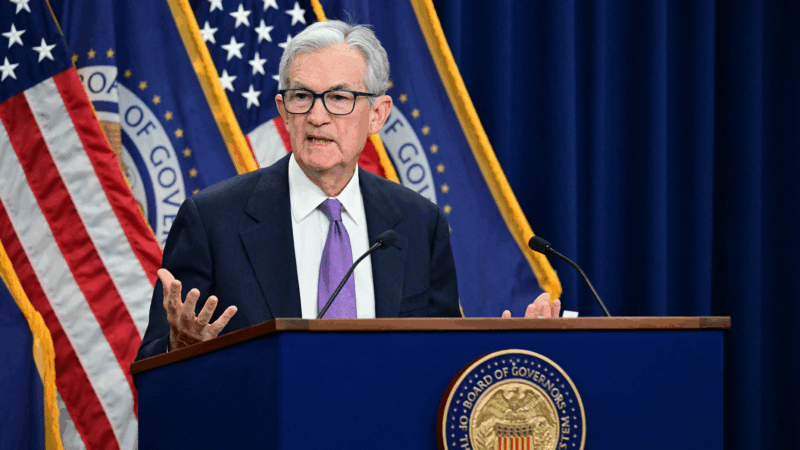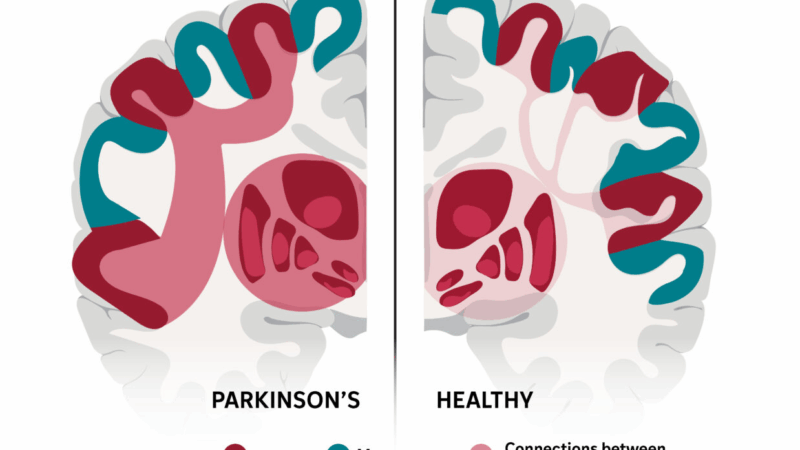White House says U.S. fentanyl overdose programs will be funded ‘in increments’
The White House says a key national fentanyl overdose prevention grant program, currently underfunded by roughly $140 million, will eventually be fully paid for, but with a catch.
The federal money allocated by Congress will now be given out “in increments” rather than a single annual payment.
Administration officials issued a statement about the future of the Overdose Data To Action or OD2A program, run by the Centers for Disease Control and Prevention, after NPR reported on growing concerns among CDC staffers.
Speaking on condition of anonymity because they fear retribution for speaking with the press without authorization, four CDC staffers said it appears the grant money would be delayed past a key Sept. 1 deadline, when the current round of funding runs out, or could disappear altogether.
“The announcement [of delays] alone could trigger layoffs and program shutdowns,” one CDC staffer said. “It could really start a chain reaction that’s hard to come back from.”
In the statement sent late Wednesday to NPR, White House spokesman Kush Desai said the OD2A program is not threatened and the “funds will continue to be disbursed in increments.”
The Department of Health and Human Services sent a separate statement to NPR saying the CDC “remains committed” to OD2A funding because it “directly aligns with administration priorities.”
But sources inside the CDC say it’s unclear how public health and addiction programs around the country will operate — hiring staff, signing contracts, and offering complex medical services — when roughly half their funding remains uncertain.
“A verbal commitment is not a contractual commitment,” said one CDC staffer, who said the administration’s system for reviewing and approving grants remains opaque. “This administration changes its mind a lot. We don’t even know why we only have 50 percent [of the OD2a funding] at this point.”
A second CDC staffer voiced similar concern: “All any state or local health department can spend is what’s in their bank account. IOUs don’t work in the public health world. They cannot assume the full amount is coming and spend accordingly.”
Administration officials declined to say why they’ve shifted to dolling out key public health dollars in incremental payments rather than annual disbursements. They also wouldn’t offer a timeline for when the remaining $140 million in OD2A funds might be sent to CDC for distribution.
Desai, the White House spokesman, suggested state and local public health departments should trust Trump to follow through on overdose prevention funding because he has made fighting fentanyl a key part of his second term.
“President Trump has done more than any other president to address America’s devastating fentanyl epidemic,” Desai said, pointing to efforts to secure the border, target drug cartels and Trump’s signing on Wednesday of the HALT Fentanyl Act that toughened criminal penalties for fentanyl trafficking.
But CDC staffers said the Trump administration has lost trust in recent months among many state and local health officials after clawing back billions of dollars in COVID-19 related grants and withholding funds for other public health grants managed by CDC, without offering explanation as to why.
Public health officials around the U.S., meanwhile, say the abrupt shift in funding for the OD2A overdose and addiction grants occurred without planning or communication, forcing some to pause future spending that relies on the federal funds.
Vermont’s Department of Health said there is “a lot of uncertainty” surrounding the funding, in a statement shared with NPR. Vermont officials said they have been warned by the CDC that OD2A funds will be delayed and may be cut. Vermont has paused spending “until we have more clarity about the future of this funding.”
CDC staffers said they also lack internal accounting systems needed to distribute money in the incremental way described by White House officials, especially when it’s unclear how grants will be reviewed or when the funds might be approved.
“Unfortunately the federal government is not nimble,” one CDC staffer said. “We will put out the money we have and [state and local public health departments] will have to do what they can.”
Judge rules 7-foot center Charles Bediako is no longer eligible to play for Alabama
Bediako was playing under a temporary restraining order that allowed the former NBA G League player to join Alabama in the middle of the season despite questions regarding his collegiate eligibility.
American Ben Ogden wins silver, breaking 50 year medal drought for U.S. men’s cross-country skiing
Ben Ogden of Vermont skied powerfully, finishing just behind Johannes Hoesflot Klaebo of Norway. It was the first Olympic medal for a U.S. men's cross-country skier since 1976.
An ape, a tea party — and the ability to imagine
The ability to imagine — to play pretend — has long been thought to be unique to humans. A new study suggests one of our closest living relatives can do it too.
How much power does the Fed chair really have?
On paper, the Fed chair is just one vote among many. In practice, the job carries far more influence. We analyze what gives the Fed chair power.
This complex brain network may explain many of Parkinson’s stranger symptoms
Parkinson's disease appears to disrupt a brain network involved in everything from movement to memory.
‘Please inform your friends’: The quest to make weather warnings universal
People in poor countries often get little or no warning about floods, storms and other deadly weather. Local efforts are changing that, and saving lives.








